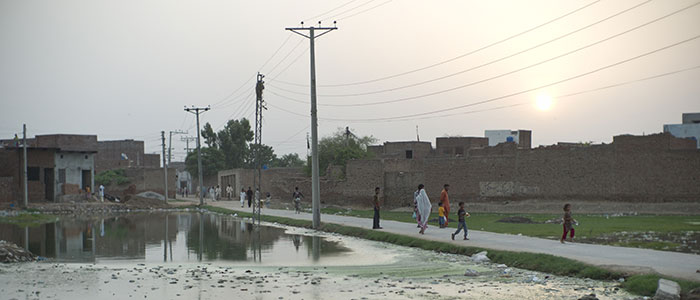Web_PakistanSlum_shutterstock_146884730.jpg

Slum in Lahore, Pakistan
The bank said Pakistan is finding it difficult to deal with an increasing urban population and the pressure this puts on infrastructure, basic services, land, housing and the environment, resulting in badly managed urbanisation that doesn’t give Pakistan the potential to transform its economy.
Peter Ellis, lead urban economist at the World Bank, said Pakistan is the most urbanised large country in South Asia and so derives much of its economic growth from cities. As such it should be able to take advantage of properly managed urbanisation to enhance their prosperity and liveability.
It is estimated that up to 78% of the country’s gross domestic product is generated in cities, and the government’s plan for the period until 2025 places a premium on urban job growth. However, the World Bank has warned that unless the problems posed by the poor-quality urbanisation to date are dealt with, this will not result in the vibrant and productive cities that fuel growth.
In its report, Leveraging Urbanisation in South Asia, the bank described Pakistan’s “messy” urbanisation as being reflected in the existence of low-density sprawl: its cities are growing outward, beyond administrative boundaries, creating challenges for planning, transportation and the provision of public services.
It also notes the widespread existence of poverty and slums. In Pakistan in 2010, one in eight urban dwellers lived below the national poverty line and almost half of the urban population lived in a slum.
“Hidden” urbanisation is defined as stemming from official national statistics that underestimate the share of the population living in areas with urban traits, which hinders planning and metropolitan management.
Officially, 36% of Pakistanis were thought to be living in urban settlements in 2010, but the World Bank estimates this could actually be as high as 55%.
The bank warned that unless these problems are addressed Pakistan’s cities will become less liveable, and noted a 2010 housing shortage of 4.4 million units.
It said policymakers should consider action at both the institutional and policy level, including improving intergovernmental fiscal relations, finding practical ways to increase the resources available to local governments, and stronger mechanisms to hold local governments accountable for their actions.
Patchamuthu Ilangovan, World Bank country director for Pakistan, said this will be “critical” in enabling Pakistan’s cities to realise their potential as the country’s urban population threatens to rise to 118 million by 2030 – an increase of 40 million.













